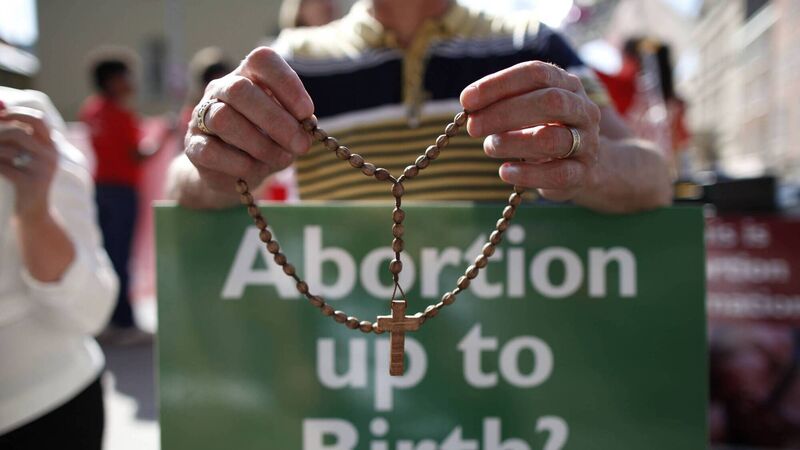Irish Examiner view: Total ban on abortion clinic protests is overdue

Repealing the Eighth Amendment sparked an array of protests in Ireland. Picture: Getty
Try from €1.50 / week
SUBSCRIBEThe question is not whether new laws should be introduced that curtail the right to protest and picket patients and staffoutside maternity hospitals and clinics providing termination of pregnancy services. The question is: Why has it taken us so long to put them in place?
It was clear from the moment that Ireland voted massively in favour of repealing the Eighth Amendment in May 2018 that dissenters would exercise ill-feelings and opposition in other ways. While it was initially promised that safe access zones would be established alongside the rollout of abortion facilities in January 2019, their implementation has become mired in a filibuster of legal and constitutional difficulties.
Already a subscriber? Sign in
You have reached your article limit.
Annual €130 €80
Best value
Monthly €12€6 / month
Introductory offers for new customers. Annual billed once for first year. Renews at €130. Monthly initial discount (first 3 months) billed monthly, then €12 a month. Ts&Cs apply.
CONNECT WITH US TODAY
Be the first to know the latest news and updates
Newsletter
Sign up to the best reads of the week from irishexaminer.com selected just for you.
Newsletter
Keep up with stories of the day with our lunchtime news wrap and important breaking news alerts.
Newsletter
Sign up to the best reads of the week from irishexaminer.com selected just for you.
Sunday, February 8, 2026 - 9:00 PM
Sunday, February 8, 2026 - 7:00 PM
Sunday, February 8, 2026 - 8:00 PM
© Examiner Echo Group Limited